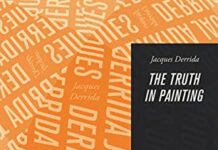
Ebook Info
- Published: 1995
- Number of pages: 168 pages
- Format: PDF
- File Size: 8.39 MB
- Authors: Jacques Derrida
Description
The name: What does one call thus? What does one understand under the name of name? And what occurs when one gies a name? What does one give then? One does not offer a thing, one delivers nothing, and still something comes to be, which comes down to giving that which one does not have, as Plotinus said of the Good. What happens, above all, when it is necessary to sur-name, renaming there where, precisely, the name comes to be found lacking? What makes the proper name into a sort of sur-name, pseudonym, or cryptonym at once singular and singularly untranslatable?Jacques Derrida thus poses a central problem in contemporary language, ethics, and politics, which he addresses in a liked series of the three essays. Passions: “An Oblique Offering” is a reflection on the question of the response, on the duty and obligation to respond, and on the possibility of not responding―which is to say, on the ethics and politics of responsibility. Sauf le nom (Post Scriptum) considers the problematics of naming and alterity, or transcendence, raised inevitably by a rigorous negative theology. Much of the text is organized around close readings of the poetry of Angelus Silesius.The final essay, Khora, explores the problem of space or spacing, of the word khora in Plato’s Tmaeus. Even as it places and makes possible nothing less than the whole world, khora opens and dislocates, displaces, all the categories that govern the production of that world, from naming to gender. In addition to readers in philosophy and literature, Khora will be of special interest to those in the burgeoning field of “space studies”(architecture, urbanism, design).
User’s Reviews
Editorial Reviews: Review “A major new book by Derrida that represents his most recent thinking, and includes landmark readings of Plato and the German poet-mystic Angelus Silesius. The essays are wonderfully rich and provocative, and, in spite of their apparent diversity of topic, are bound together as three ways of approaching the problematic of naming and speaking of something that exceeds ‘isness.’ ”―J. Hillis Miller, University of California, Irvine From the Inside Flap “The name: What does one call thus? What does one understand under the name of name? And what occurs when one gies a name? What does one give then? One does not offer a thing, one delivers nothing, and still something comes to be, which comes down to giving that which one does not have, as Plotinus said of the Good. What happens, above all, when it is necessary to sur-name, renaming there where, precisely, the name comes to be found lacking? What makes the proper name into a sort of sur-name, pseudonym, or cryptonym at once singular and singularly untranslatable?”Jacques Derrida thus poses a central problem in contemporary language, ethics, and politics, which he addresses in a liked series of the three essays. Passions: “An Oblique Offering”is a reflection on the question of the response, on the duty and obligation to respond, and on the possibility of not responding—which is to say, on the ethics and politics of responsibility. Sauf le nom (Post Scriptum)considers the problematics of naming and alterity, or transcendence, raised inevitably by a rigorous negative theology. Much of the text is organized around close readings of the poetry of Angelus Silesius.The final essay, Khora,explores the problem of space or spacing, of the word khorain Plato’s Tmaeus. Even as it places and makes possible nothing less than the whole world, khoraopens and dislocates, displaces, all the categories that govern the production of that world, from naming to gender. In addition to readers in philosophy and literature, Khorawill be of special interest to those in the burgeoning field of “space studies”(architecture, urbanism, design). From the Back Cover “A major new book by Derrida that represents his most recent thinking, and includes landmark readings of Plato and the German poet-mystic Angelus Silesius. The essays are wonderfully rich and provocative, and, in spite of their apparent diversity of topic, are bound together as three ways of approaching the problematic of naming and speaking of something that exceeds ‘isness.’ ” —J. Hillis Miller, University of California, Irvine About the Author Jacques Derrida (1930–2004) was director of studies at the école des hautes études en sciences sociales, Paris, and professor of humanities at the University of California, Irvine. He is the author of many books published by the University of Chicago Press. Read more
Reviews from Amazon users which were colected at the time this book was published on the website:
⭐A book like this…a review thereof for whom?A certain amount of “familiarity” with Jackie’s style of writing will probably be necessary to get into these three short essays around (and whatever other prepositions you care to put in) the theme of the name, naming, saving the name, keeping the name safe, and the name’s refusal to be called by a name.The first of the essays is titled “Passions” and is the most fragmented of the three in terms of delivery. A bit taxing, really. By way of introduction, Jack commits an abduction by way of “apophasis” — a kind of an irony, whereby we deny that we say or do that which we especially say or do (OED) — to bring about the idea of the passions of secrets: Secrets not by being hidden nor by being shared by a privileged few, but the kind that is open to all, perhaps taking on the form of a non-secret.The second essay has a little more to sink one’s teeth into. The subject is “negative theology” as such, or the (im)possibility thereof. A very penetrating reading of Angelus Silesius’ The Cherubinic Wanderer.The third essay, “Khora” — non-placeable place, the third genus — is a reading of Plato’s notion of that “mother”, “nurse”, “the Receiver” that gives place for all that “takes place”: A placing, a positing of displacement and differance, a displacement by way of oscillation between two types of oscillation: the double exclusion(neither/nor) and the participation(both this and that).In short, this collection of essays opens up another (that is to say, the very same) horizon of thinking toward what used to be under the care of religion, and as such can be rewarding reading to those who are already aware of the necessity of reworking the language of absence without resorting to what was once named “mysticism”. If Nagarjuna were born into the French language in the 20th century, he’d probably speak like this.The writing on the back cover says that the last essay will be of particular interest to those in the burgeoning fields of “space studies”(architecture, urbanism, design). Interest? Maybe. Clarity and enlightenment? I wouldn’t bet my lunch money on it myself.
⭐
Keywords
Free Download On the Name (Meridian: Crossing Aesthetics) 1st Edition in PDF format
On the Name (Meridian: Crossing Aesthetics) 1st Edition PDF Free Download
Download On the Name (Meridian: Crossing Aesthetics) 1st Edition 1995 PDF Free
On the Name (Meridian: Crossing Aesthetics) 1st Edition 1995 PDF Free Download
Download On the Name (Meridian: Crossing Aesthetics) 1st Edition PDF
Free Download Ebook On the Name (Meridian: Crossing Aesthetics) 1st Edition





